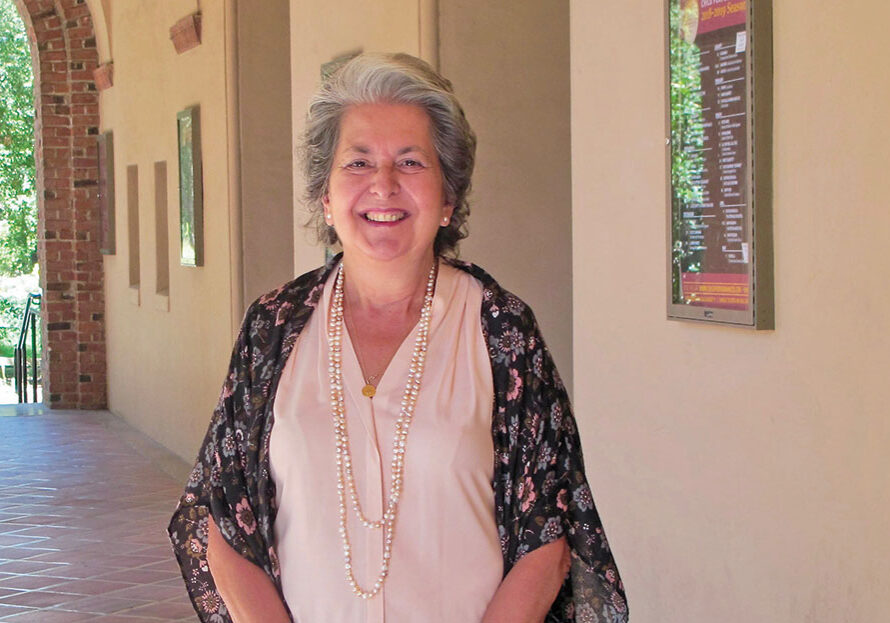
Community College can be an affordable gateway to early graduation and a successful career.
Many people who are considering obtaining a college degree overlook the benefits of attending a community college, perhaps incorrectly assuming that it is just for those who can’t get into to a four-year university. The truth is that community colleges can be the perfect fit for a high school student, graduate or returning adult looking for a career boost or change. Here’s why community colleges deserve to be included on your college consideration list.
Community college is affordable
Locally, community college tuition for in-state, full-time students averages between $1,200 and $1,400 a year, not including books, room and board. If we want to compare apples to apples, the cost of tuition and fees in a public four-year college in the North State region averages between $5,000 and $15,000 per year, making community college less than a third of the cost of a four-year college.
In California, many community colleges are free or extremely low-cost for local high school graduates. Shasta College offers two years of free tuition for any full-time student. Students can also attend tuition-free while they are in high school, jump-starting their college education while keeping costs down. “My son did summers at Shasta College, and took dual enrolled classes during his high school term which counted toward his high school classes for graduation and gave him college credits,” says Peter Griggs, director of marketing, communications and public relations at Shasta College. “He ultimately went to Shasta College for one year, transferred to Sacramento State University and graduated with a BS in a STEM field with two minors – in three years total of college.”
Smaller class sizes, hands-on learning, future employment opportunities
Not everyone is successful in a large auditorium-like setting. Community colleges have smaller class sizes and allow for more hands-on learning experiences and better relationships with professors. In addition, many night classes are taught by professionals in their field versus a professor who has not been in the field for several years. These adjunct professors are also helpful in opening doors for future employment. Many community colleges offer career and internship placement services for students for the local market.
Community colleges offer opportunities to explore options
It’s hard to know what you want to do with the rest of your life at 18 or to juggle the demands of work and family if you’re a returning student. Community college allows a student to try different introductory classes without paying room and board and all the expense of entering a four-year university. With smaller departments, students at community colleges may have the opportunity to shadow another student or take advantage of internship opportunities for career technical classes, to see if that field of study is really what they want to do.
 Close to home and easy transition to college life
Close to home and easy transition to college life
Community colleges are closer to home, which means less commuting time and no extra room and board. It can be an easier transition for those students who need a little more time to adjust to post-high school life and are not ready to move away from home yet. Community colleges also offer a wealth of support services for all students to help them achieve their educational goals.
Community colleges offer flexibility to meet life’s challenges
The class times at a community college are offered during the day or at night, with many online, in-person and hybrid classes for maximum flexibility, giving the student the ability to work a full-time job or tend to other responsibilities. Some community colleges offer off-site classes in local libraries or other campus satellite sites, so students don’t have to drive to the main campus.
Community colleges offer plenty of extra-curricular activities
Community colleges have many of the groups you will find at a four-year college – athletics, theater, honors societies, clubs, leadership opportunities and travel to study abroad. When compared to the tens of thousands of students in larger four-year colleges, community colleges have less competition to fill these positions.
Gateway to a four-year university
Community college is a great solution for students who want to focus on boosting their incoming GPA on a four-year university transfer.
An ADT (Associate Degree for Transfer), an excellent option available from California community colleges, is a two-year associate degree that is fully transferable to a California State University (CSU). Sometimes called a Degree with a Guarantee, it is no more than 60 semester units. Students who meet the CSU’s minimum eligibility requirements are guaranteed admission to a CSU campus. Alternatively, community college students can complete TAG (Transfer Admission Guarantee) agreements that guarantee admission to many University of California (UC) campuses upon completion of the agreement, which includes requirements for GPA and completing qualifying classes.
Over 30 bachelor’s degree programs are available within the California Community College System (CCC). Twenty-nine percent of University of California and 51 percent of California State University graduates started at a California community college.
Community supported scholarships
Community college means community involvement. Many local businesses offer scholarships or internships to students at the college in their community with the hopes of recruiting some of these students to work for them in the future. Transfer scholarships are also available to students who choose to go to four-year colleges after graduation.
Community college might be all you need
Over 200 career technical programs throughout the CCC system offer a certificate requiring as short as a semester’s worth of study up to a two-year community college degree, so attending a four-year university is not the only road to success. Students are often hired right out of these programs, called CTE (career technical education) – even before they graduate. According to the California Community Chancellor’s website, there are at least 15,000 jobs with starting salaries of $40K and up that can be obtained with a two-year degree.
Currently, 45 percent of Butte College graduates will earn more than $54,000 per year after five years in the workforce with only an associate degree. A quarter of those graduates go on to make over $70,000 per year.
With all that area community colleges offer, it’s worth exploring college and career preparation opportunities available to your high school student at your local community college well before graduation or to returning students looking to change careers or upgrade skills and certifications affordably and rapidly.
North State Community Colleges
Butte College butte.edu
College of the Siskiyous siskiyous.edu
Feather River College frc.edu
Lassen College lassencollege.edu
Shasta College shastacollege.edu
Yuba City College yc.yccd.edu
Notable Graduates of Community College
- Halle Berry, actor – Cuyahoga Community College
- John & Jim Belushi, actors – College of DuPage
- Eileen Collins, astronaut – Corning Community College
- Guy Fieri, Food Network host – American River College
- Morgan Freeman, actor – LA City College
- Tom Hanks, actor – Chabot College
- Steve Jobs, co-founder and CEO Apple – Reed College
- George Lucas, filmmaker – Modesto Jr. College
- Jackie Robinson, MLB Star – Pasadena City College
- Aaron Rodgers, NFL Star – Butte College
- Arnold Schwarzenegger, former governor of California – Santa Monica College
- Amy Tan, author – San Jose City College
Notable Shasta College Graduates
- Jason Sehorn, (NFL NY Giants, St. Louis Rams)
- Ken Shamrock, UFC
- Ricky Ray (CFL for Argonauts and Edmonton Eskimos)
- Easton Waterman (Miami Marlins)
- Leon Donohue coach
- Sydney Mancasola (opera) and Rafael Helbig-Kostka (opera)
- Superior Court Judge Tamara Wood
- CalFire Chief Joe Tyler
Posted in: Education
Comment Policy: All viewpoints are welcome, but comments should remain relevant. Personal attacks, profanity, and aggressive behavior are not allowed. No spam, advertising, or promoting of products/services. Please, only use your real name and limit the amount of links submitted in your comment.
You Might Also Like...

Teenage Musicians: Win $400 In Music Store Prizes!
The Music Connection and North State Parent want to hear your story! If you are between the ages of 13 and 17 years old, and live in Upper California, send […]

Consider Summer Tutoring
School’s nearly out for summer. Are you thinking about ways to give your child an educational boost, or brainstorming ways to keep your child’s mental skills sharp? Tutoring can help […]
Seeds Of School Success: Nurturing The Parent-Teacher Relationship
Kids are notoriously reticent when it comes to divulging details of their school lives. Questions from parents often receive a single-word response … or a shrug. The first indication of […]

Youth Sports: How does Early Specialization Affect The Developing Child?
While children used to simply go outside and play, their days are now filled with organized sports practices and games that become more focused and intense, moving up from recreational […]

Art! It’s Fun & Fundamental – Three North State Studios Offer Arts Classes for Healthier, Happier People.
Many people appreciate the enjoyment received from creating art, but probably few understand its benefits to health and happiness. Making art teaches appropriate ways to problem solve and deal with […]



 Close to home and easy transition to college life
Close to home and easy transition to college life 